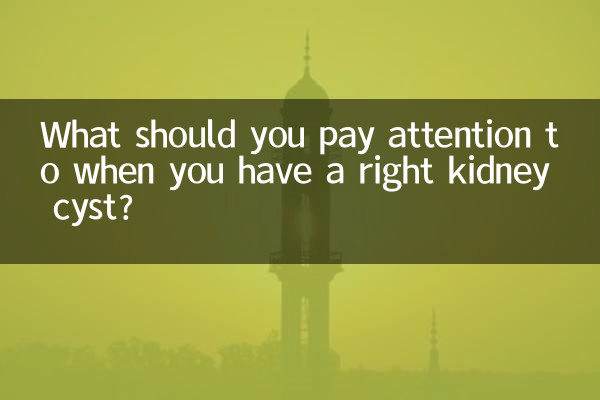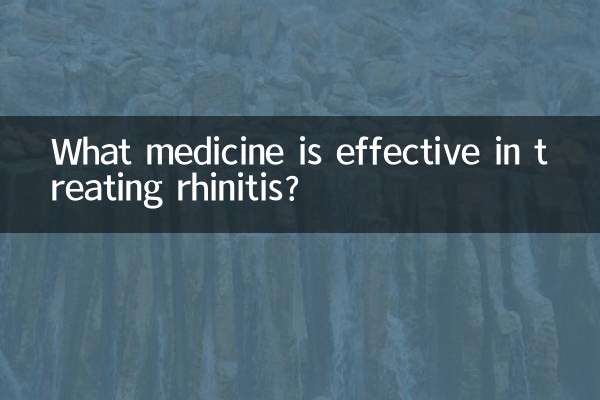What should you pay attention to when you have a right kidney cyst?
Right kidney cyst is a common kidney disease that is usually benign, but may require medical intervention in some cases. Understanding the precautions for right renal cysts can help patients better manage their health. The following is a detailed analysis and recommendations for right renal cysts.
1. Basic knowledge of right renal cyst

A right kidney cyst is a fluid-filled sac-like structure that forms in the tissue of the right kidney. Most kidney cysts are asymptomatic, but some patients may develop symptoms such as low back pain, hematuria, or infection. Depending on the nature and size of the cyst, your doctor will recommend different treatments.
| Cyst type | feature | Common symptoms |
|---|---|---|
| simple renal cyst | benign, single shot, fluid filled | Usually asymptomatic, occasionally with low back pain |
| complex renal cyst | There may be septations, calcifications, or bleeding | Low back pain, hematuria, infection |
| polycystic kidney disease | Hereditary, bilateral multiple cysts | High blood pressure, decreased kidney function |
2. Precautions for right renal cyst
1.Regular inspection: For asymptomatic simple renal cysts, annual ultrasound examination is recommended to monitor changes in the cyst. If the cyst grows or symptoms develop, seek medical attention promptly.
2.diet modification: Maintain a low-salt and low-fat diet to avoid a high-protein diet that increases the burden on the kidneys. Drinking plenty of water can help prevent urinary tract infections.
| dietary advice | Specific content |
|---|---|
| low salt diet | Daily salt intake should not exceed 5 grams |
| low fat diet | Reduce animal fat intake and choose vegetable oils |
| Moderate amount of protein | Daily protein intake should be controlled at 0.8-1.0 g/kg of body weight |
| drink more water | Keep your daily water intake at 1.5-2 liters |
3.Avoid strenuous exercise: When the cyst is large, strenuous exercise may cause the cyst to rupture or bleed. It is recommended to choose gentle exercise, such as walking, yoga, etc.
4.control blood pressure: High blood pressure may increase the burden on the kidneys, especially in patients with polycystic kidney disease. Blood pressure should be monitored regularly and antihypertensive drugs should be taken under the guidance of a doctor if necessary.
5.Prevent infection: People with kidney cysts are more likely to develop urinary tract infections. Pay attention to personal hygiene and avoid holding in urine. If you have symptoms such as frequent urination, urgency, or painful urination, you should seek medical treatment in time.
3. Treatment of right renal cyst
1.Conservative treatment: For asymptomatic small cysts, treatment is usually not required, just regular follow-up.
2.Puncture and fluid extraction: For larger cysts or symptomatic cysts, doctors may recommend puncture extraction and injection of sclerosing agent to reduce recurrence.
3.surgical treatment: For complex cysts or cysts suspected of malignant transformation, surgical removal may be required.
| Treatment | Applicable situations | Advantages and Disadvantages |
|---|---|---|
| Conservative treatment | asymptomatic small cyst | Non-invasive, but requires regular review |
| Puncture and fluid extraction | Large or symptomatic cyst | Minimally invasive, but possible recurrence |
| surgical treatment | Complex or malignant cyst | Curative, but more traumatic |
4. Prognosis of right renal cyst
Most right renal cysts are benign and have a good prognosis. But people with polycystic kidney disease may need long-term management to slow the deterioration of kidney function. Regular follow-up and a healthy lifestyle are keys to improving prognosis.
5. Latest hot topics
Recently, research and treatment techniques on renal cysts have become a hot topic. The following are the hot topics on the Internet in the past 10 days:
| hot topics | Content summary |
|---|---|
| Minimally invasive treatment of renal cysts | New sclerotherapy and laparoscopic techniques reduce recurrence rates |
| Gene therapy for polycystic kidney disease | Clinical trials show gene-editing technology could slow disease progression |
| The relationship between diet and renal cysts | Study finds low-salt diet slows cyst growth |
Summarize
Patients with right kidney cysts should pay attention to regular examinations, adjust their diet, avoid strenuous exercise and control their blood pressure. Most cysts require no treatment, but if you have symptoms or the cyst grows, you should seek medical attention promptly. The latest minimally invasive techniques and gene therapies offer patients more options.

check the details

check the details